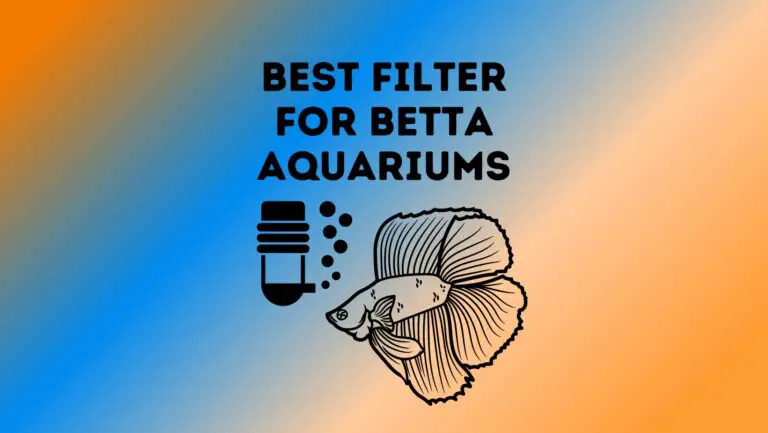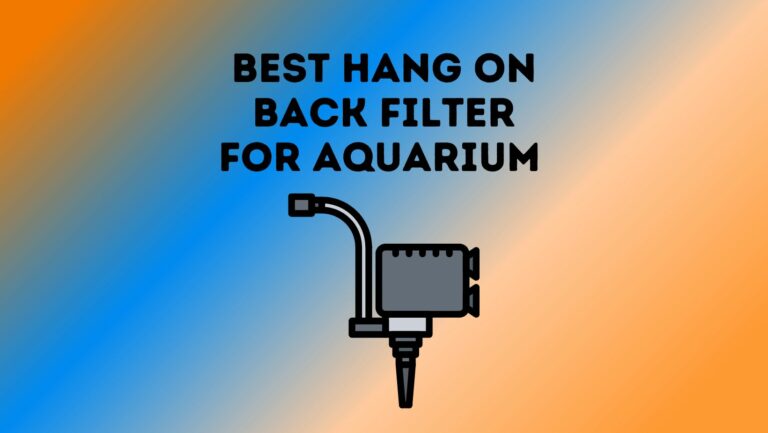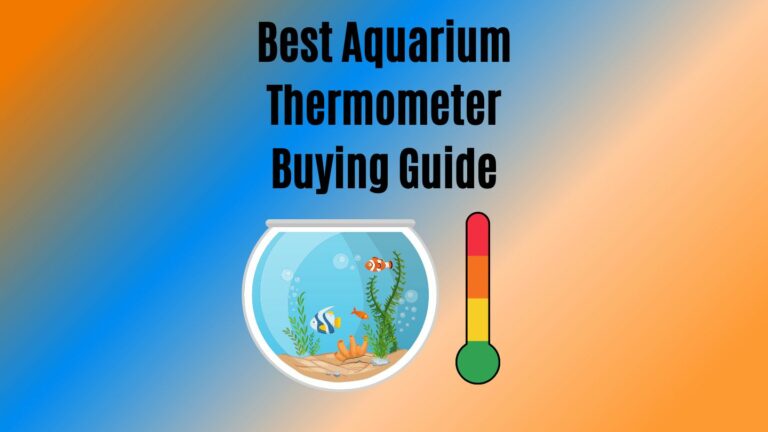
Betta fish are really easy to care for whether you’re in or out of town. Having a Betta fish shouldn’t stop you from enjoying this great vacation you’ve been dreaming of for months.
Feeding, lighting, water quality and temperature are the main things that you’ll need to consider before taking off. Although it’s really important to keep the tank clean and cosy, the most crucial point is feeding your betta fish.
In this article, we’ll tell you how to feed betta fish while away. Pick one of these choices and rest assured that you’ll come back to a healthy and happy fish.
6 Easy Ways to Feed Betta Fish While Away
You can go for one of these ways to feed your betta fish while you’re away. We’ll walk you through each one and show you their pros and cons.
Ask Someone for Help
While you’re away, you can ask a friend, a neighbour, or a family member to come over to feed your betta. If they can’t leave their houses, you can take the fish to them. It’s also possible to hire someone to do it for you if no one else is available.
It’d be better if that person is familiar with the process. If not, there are some ways to ensure that they’ll get the job done correctly.
- Leave clear, written instructions for how often and how much to feed the fish.
- Put the daily portions of betta fish food in labeled plastic bags with the day written on the bag.
- Leave a weekly pillbox for your sitter and put daily food portions in each labeled day.
- Ask the sitter to empty the day’s portion in the tank.
- Make sure the sitter also checks the water temperature and quality.
Pros
- You won’t feel worried about your fish; someone is there to feed it regularly.
- As a bonus, water will be checked and changed if needed.
Cons
- Some sitters may overfeed the fish because they still look hungry after feeding them.
You can tell them not to fall for that because overfeeding the fish is actually more harmful than underfeeding them.
Skip Feeding Altogether
Don’t worry. You’re not going to starve your fish to death. As a betta fish owner, you must already know that betta fish can go without food for almost two weeks.
You may also know that fasting can be beneficial for betta fish as a way to keep constipation and bloating at bay.
Fasting them on longer vacations may not be a good idea.
It’s important to note that the bettas’ ability to go without food varies depending on their age, health, size, and metabolism. For example, this method can be used with adult bettas, not elderly or baby bettas. And you don’t know how your own fish will react to this method.
Plus, starvation may cause stress, leaving the fish will be susceptible to diseases.
So, it may be a smart idea to try fasting your fish before you travel. See how your fish reacts and decide whether it’ll work out for you.
Pros
- A convenient method that costs nothing.
- The water won’t be less polluted compared to using the other methods incorrectly.
Cons
- You may feel worried about your fish, which might not be great for your vacation
Invest in One of Those Good-Quality Automatic Feeders
Automatic feeders release a particular amount of food at specific time intervals.
Smart feeders may even allow you to make scheduled feedings and monitor the condition of the tank. Some automatic feeders can be used to feed your fish for up to six weeks.
However, a cheap one won’t do. Low-quality feeders may allow moisture to leak into the fish food. As you might already know, wet food will be more likely to be clumpy.
Also, bad feeders might hold the food inside, leaving fish to starve. Or, it might release the food all at once. Indeed, the fish won’t eat all that food, which would increase the probability of spoilage. This might fill the water with ammonia, a substance harmful to fish.
In both cases, it’s too bad for the poor fish. So, it’s best to buy a high-end automatic feeder that won’t let you down. Also, we recommend testing the feeder to ensure it works properly before hitting the road.
Automatic feeders are powered by either batteries or electricity. You need to make sure that the battery capacity of your feeder matches the length of your trip. If it’s electrical, you need to buy a good-quality feeder to avoid any short circuits.
Pros
- You can be assured that your fish is fed regularly without worries.
- Food will be dispersed more evenly compared to block feeders.
Cons
- It’s a pricey option.
Give the Fish Feeding Blocks
Feeding blocks or block feeders are basically tablets made of fish food. The tablet breaks down gradually and your fish gets the food it needs over time. Feeding blocks can last from 3 to 14 days. Here’s how to use feeding blocks.
- Look for blocks that have nutritious ingredients and create less waste.
- Try a block feeder before your vacation and test the water quality.
- Choose the feeding block depending on the duration of your vacation.
- Leave a feeding block in the fish tank before you travel.
Pros
- It’s one of the cheapest options for feeding your betta while away.
- No need to worry about batteries dying out or electric shocks.
Cons
- Feeding blocks may not work evenly. So, your fish may get too little or too much food.
- They cloud the tank water and may increase ammonia to harmful levels for the fish.
Offer Your Betta Some Feeder Fish
If you have a large tank, it’s a smart idea to give your bettas feeder fish. This can work with short vacations only. Choose a type of fish that breeds often, like goldfish fry.
Pros
- It resembles the bettas’ natural habitat and way of finding food.
- It’s an expensive solution.
Cons
- Sometimes bettas may not eat the fish.
- By adding more fish to the water, it becomes dirtier faster.
Ask the Pet Store Nearby to Keep an Eye on Your Betta
You can ask a pet store if they can keep your fish for a fee. This can be an excellent choice because you’ll know that a professional is taking care of them. They’ll be fed regularly and the water will be checked and changed.
Make sure they also don’t put them in community tanks where they might catch a disease from one fish or another.
Pros
- You’ll be relieved that your fish is warm and adequately fed.
- In case of emergencies, any problem will be handled in time.
Cons
- Transporting your fish and subjecting them to temperature and lighting changes may stress them out.
What Else Do I Need to Consider Before I Leave My Betta Fish?
Feeding your betta fish isn’t the only thing you need to take care of before leaving. Here are some other things you may want to maintain.
Water Temperature
The ideal temperature for betta fish is 76-81 °F. They shouldn’t be exposed to sudden changes to avoid stress and diseases.
In cold weather, make sure to leave the tank in a warm spot in your house. You can also wrap the tank with a towel. You can invest in a tank heater that turns off at a set temperature. In hot weather, you might need to leave the air conditioner on to avoid overheating.
Water Quality
Excessive amounts of ammonia, fish food, and waste can be harmful to your betta fish.
Clean your tank before leaving and when you turn. Make sure to clean the glass and the bottom of the tank, and change the water. Also, it’s best to clean the tank filter to ensure it’s working properly.
If you’re planning to stay for more than two weeks, you will need to ask your sitter to change the tank water once a week.
Day and Night Cycles
Betta fish are active and they tend to play during the day and sleep at night. To give your fish a normal day and night schedule while you’re away, try to place the tank in a room with indirect sunlight.
Just don’t leave them in a dark spot where they don’t get any light. Use a fish tank light timer to control your tank canopy light and set the on/off schedule.
Conclusion
You may have been stressing out about feeding your betta fish while away. But now that you know that you have options, you should relax and get ready.
How to feed betta fish while away mainly depends on how long you’re planning to travel. For vacations of less than a week, you can try fasting the fish or using block feeders. Vacations longer than a week may require the use of an automatic fish feeder.
The best option is enlisting the help of a friend, not only for feeding the fish but also for keeping the water quality and temperature at decent levels until you come back





